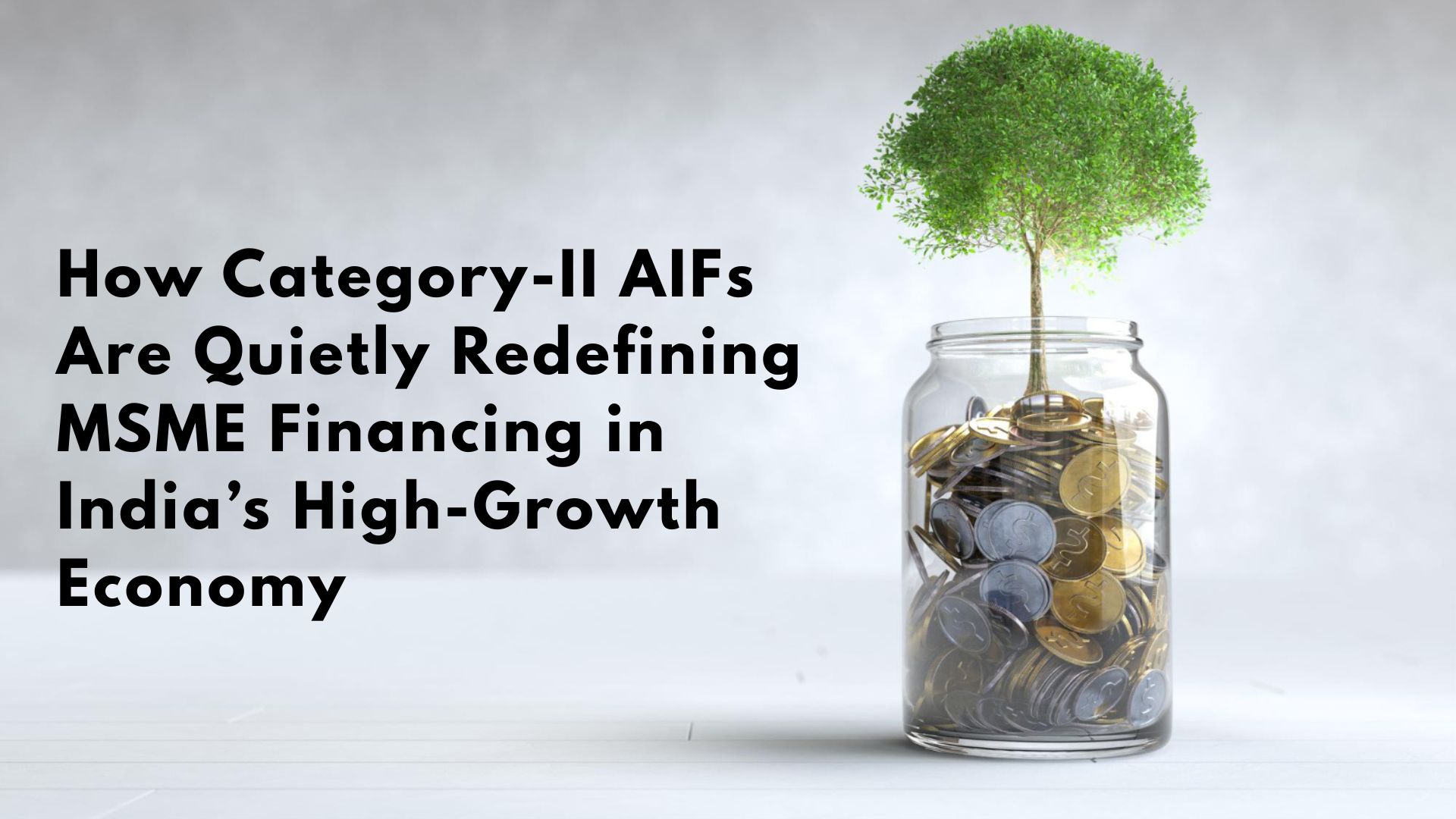Unlocking Green Capital: A New Growth Agenda For Indian MSMEs

As climate urgency accelerates and global regulations tighten; green financing has emerged as a critical lever for India’s transition to a low-carbon economy. For India’s vast network of micro, small, and medium enterprises (MSMEs) which constitute the backbone of employment and exports, access to green capital is becoming both an opportunity and a necessity.
Today, green financing is not just a buzzword; it’s a multi-billion-dollar global movement. And in 2025, India stands at the center of this shift, with both government bodies and financial institutions are pivoting towards climate-aligned credit models for MSMEs.
Globally, green finance has already crossed $1.9 trillion in annual volumes. In India, the potential is massive: a recent estimate by the Reserve Bank of India (RBI) and IFC pegs the country’s climate finance needs at $10.1 trillion by 2070, with over 20% required to enable small and medium-sized businesses to decarbonize.
India’s 59.3 million+ registered MSMEs contribute nearly 46% of India’s exports and employ over 250 million people. Yet, they are among the most underserved segments in climate finance due to lack of ESG awareness, credit ratings, and carbon data infrastructure.
“SMEs are essential to India’s sustainability transition,” says Xie Wen, Global Head of SME Banking at Standard Chartered, which is scaling up its green lending program in India after a successful pilot in Singapore. “The challenge lies in gathering reliable carbon data from SMEs, but we’re building partnerships with green data firms to close that gap.”
Standard Chartered’s global green asset portfolio hit $17.39 billion in 2024, and India alongside Hong Kong and Singapore is now one of its fastest-growing SME markets.
What FSIs Are Doing in 2025
Standard Chartered Bank
- Piloting ESG-linked lending products tailored to Indian SMEs.
- Introducing ESG onboarding questionnaires to foster compliance.
- Partnering with carbon tracking technology firms to ensure transparency and impact measurement.
ICICI Bank
- Expanded its Green Loan Product Suite for SMEs in solar, EV, and energy efficiency sectors.
Bajaj Finance
- They have planned to finance solar and EV products for retail and MSME customer starting Q4 FY25.
Finance Industry Development Council (FIDC), called for setting up a dedicated refinance institution in the country for NBFCs to exclusively cater to the credit needs of MSMEs, priority sector and green initiatives.
Government Support: From Policy to Practice
The Ministry of MSME’s MSE-GIFT Scheme, launched in December 2023, is offering concessional financing to SMEs that adopt energy-efficient technologies, switch to renewable energy, or implement sustainable manufacturing processes. Over 12,000 MSMEs have already registered interest in 2025.
In parallel, SIDBI has rolled out new credit guarantee schemes for green upgrades, while RBI’s draft framework on green taxonomy is expected to streamline how green activities are defined and reported.
Role of Technology: Bridging the Carbon Data Gap
A major bottleneck in scaling green lending to SMEs is the lack of credible carbon data. In 2025, banks are increasingly relying on climate fintechs and IoT-based tools to measure energy use, emissions, and sustainable practices.
Platforms like Ecofy, Climatrace India, and GreenIQ are being integrated into banking ecosystems, offering APIs that assess and report carbon footprints making green financing more verifiable and accessible.
The Way Forward: Democratizing Green Credit
As the green economy gains momentum, India’s financial sector is witnessing a shift—from product-centric to impact-centric lending. The future of green finance for MSMEs will rest on three key pillars:
- Data Accessibility – Enabling SMEs to track, report, and benchmark emissions.
- Public-Private Collaboration – Aligning government subsidies with banking products.
- Incentive-Linked Lending – Rewarding ESG compliance with better terms, rates, and global market access.
With regulators nudging compliance, consumers demanding sustainability, and global investors favoring ESG portfolios, Indian SMEs stand at a critical inflection point. Institutions like Standard Chartered and ICICI Bank are no longer just lenders they are becoming climate partners to India’s small businesses.
As India advances toward its Net Zero 2070 target, unlocking green capital for SMEs is not just a necessity, it’s the backbone of a resilient, inclusive, and sustainable economic future.











